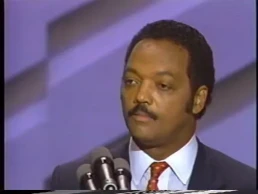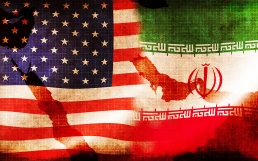Western leaders ignore pleas for diplomacy, claiming a monopoly on moral leadership that they decisively lost on March 19, 2003, when the United States and the United Kingdom tore up the UN Charter and invaded Iraq.
By Medea Benjamin and Nicolas J. S. Davies, InDepthNews
March 19th marks the 20th anniversary of the U.S. and British invasion of Iraq. This seminal event in the short history of the 21st century not only continues to plague Iraqi society to this day, but it also looms large over the current crisis in Ukraine, making it impossible for most of the Global South to see the war in Ukraine through the same prism as U.S. and Western politicians.

While the U.S. was able to strong-arm 49 countries, including many in the Global South, to join its “coalition of the willing” to support invading the sovereign nation of Iraq, only the U.K., Australia, Denmark and Poland actually contributed troops to the invasion force, and the past 20 years of disastrous interventions have taught many nations not to hitch their wagons to the faltering U.S. empire.
Today, nations in the Global South have overwhelmingly refused U.S. entreaties to send weapons to Ukraine and are reluctant to comply with Western sanctions on Russia. Instead, they are urgently calling for diplomacy to end the war before it escalates into a full-scale conflict between Russia and the United States, with the existential danger of a world-ending nuclear war.
The architects of the U.S. invasion of Iraq were the neoconservative founders of the Project for a New American Century (PNAC), who believed that the United States could use the unchallenged military superiority that it achieved at the end of the Cold War to perpetuate American global power into the 21st century.
The invasion of Iraq would demonstrate U.S. “full spectrum dominance” to the world, based on what the late Senator Edward Kennedy condemned as “a call for 21st century American imperialism that no other country can or should accept.”
Kennedy was right, and the neocons were utterly wrong. U.S. military aggression succeeded in overthrowing Saddam Hussein, but it failed to impose a stable new order, leaving only chaos, death and violence in its wake. The same was true of U.S. interventions in Afghanistan, Libya and other countries.
For the rest of the world, the peaceful economic rise of China and the Global South has created an alternative path for economic development that is replacing the U.S. neocolonial model. While the United States has squandered its unipolar moment on trillion-dollar military spending, illegal wars and militarism, other countries are quietly building a more peaceful, multipolar world.
And yet, ironically, there is one country where the neocons’ “regime-change” strategy succeeded, and where they doggedly cling to power: the United States itself. Even as most of the world recoiled in horror at the results of U.S. aggression, the neocons consolidated their control over U.S. foreign policy, infecting and poisoning Democratic and Republican administrations alike with their exceptionalist snake oil.
Corporate politicians and media like to airbrush out the neocons’ takeover and continuing domination of U.S. foreign policy, but the neocons are hidden in plain sight in the upper echelons of the U.S. State Department, the National Security Council, the White House, Congress and influential corporate-funded think tanks.
PNAC co-founder Robert Kagan is a senior fellow at the Brookings Institution and was a key supporter of Hillary Clinton. President Biden appointed Kagan’s wife, Victoria Nuland, a former foreign policy adviser to Dick Cheney, as his Under Secretary of State for Political Affairs, the fourth most senior position in the State Department. That was after she played the lead U.S. role in the 2014 coup in Ukraine, which caused its national disintegration, the return of Crimea to Russia and a civil war in Donbas that killed at least 14,000 people.
Nuland’s nominal boss, Secretary of State Antony Blinken, was the staff director of the Senate Foreign Relations Committee in 2002, during its debates over the impending U.S. assault on Iraq. Blinken helped the committee chairman, Senator Joe Biden, choreograph hearings that guaranteed the committee’s support for the war, excluding any witnesses who did not fully support the neocons’ war plan.
It is not clear who is really calling the foreign policy shots in Biden’s administration as it barrels toward World War III with Russia and provokes conflict with China, riding roughshod over Biden’s campaign promise to “elevate diplomacy as the primary tool of our global engagement.” Nuland appears to have influence far beyond her rank in the shaping of U.S. (and thus Ukrainian) war policy.
What is clear is that most of the world has seen through the lies and hypocrisy of U.S. foreign policy, and that the United States is finally reaping the result of its actions in the refusal of the Global South to keep dancing to the tune of the American pied piper.
At the UN General Assembly in September 2022, the leaders of 66 countries, representing a majority of the world’s population, pleaded for diplomacy and peace in Ukraine. And yet Western leaders still ignore their pleas, claiming a monopoly on moral leadership that they decisively lost on March 19, 2003, when the United States and the United Kingdom tore up the UN Charter and invaded Iraq.
In a panel discussion on “Defending the UN Charter and the Rules-Based International Order” at the recent Munich Security Conference, three of the panelists—from Brazil, Colombia and Namibia–explicitly rejected Western demands for their countries to break off relations with Russia, and instead spoke out for peace in Ukraine.
Brazilian Foreign Minister Mauro Vieira called on all the warring parties to “build the possibility of a solution. We cannot keep on talking only of war.” Vice President Francia Márquez of Colombia elaborated, “We don’t want to go on discussing who will be the winner or the loser of a war. We are all losers and, in the end, it is humankind that loses everything.”
Prime Minister Saara Kuugongelwa-Amadhila of Namibia summed up the views of Global South leaders and their people: “Our focus is on solving the problem…not on shifting blame,” she said. “We are promoting a peaceful resolution of that conflict, so that the entire world and all the resources of the world can be focused on improving the conditions of people around the world instead of being spent on acquiring weapons, killing people, and actually creating hostilities.”
So how do the American neocons and their European vassals respond to these eminently sensible and very popular leaders from the Global South? In a frightening, warlike speech, European Union foreign policy chief Josep Borrell told the Munich conference that the way for the West to “rebuild trust and cooperation with many in the so-called Global South” is to “debunk… this false narrative… of a double standard.”
But the double standard between the West’s responses to Russia’s invasion of Ukraine and decades of Western aggression is not a false narrative. In previous articles, we have documented how the United States and its allies dropped more than 337,000 bombs and missiles on other countries between 2001 and 2020. That is an average of 46 per day, day in day out, for 20 years.
The U.S. record easily matches, or arguably far outstrips, the illegality and brutality of Russia’s crimes in Ukraine. Yet the U.S. never faces economic sanctions from the global community. It has never been forced to pay war reparations to its victims. It supplies weapons to the aggressors instead of to the victims of aggression in Palestine, Yemen and elsewhere. And U.S. leaders–including Bill Clinton, George W. Bush, Dick Cheney, Barack Obama, Donald Trump, and Joe Biden—have never been prosecuted for the international crime of aggression, war crimes or crimes against humanity.
As we mark the 20th anniversary of the devastating Iraq invasion, let us join with Global South leaders and the majority of our neighbors around the world, not only in calling for immediate peace negotiations to end the brutal Ukraine war, but also in building a genuine rules-based international order, where the same rules—and the same consequences and punishments for breaking those rules—apply to all nations, including our own.
Medea Benjamin and Nicolas J. S. Davies are the authors of War in Ukraine: Making Sense of a Senseless Conflict, published by OR Books in November 2022. Benjamin is the cofounder of CODEPINK for Peace and the author of several books, including Inside Iran: The Real History and Politics of the Islamic Republic of Iran. Davies is an independent journalist, a researcher with CODEPINK and the author of Blood on Our Hands: The American Invasion and Destruction of Iraq.
Recent Posts
Minneapolis: Organizing for the Protection of the Community
February 18, 2026
Take Action Now In speaking with residents in several parts of Minneapolis, beautiful stories of organizing on a block-by-block level emergedBy…
U.S. Sent a Rescue Plane For Boat Strike Survivors. It Took 45 Hours To Arrive.
February 17, 2026
Take Action Now In seas that could kill a person within an hour, it took nearly two days for a rescue plane to arrive.By Tomi McCluskey and Nick…
“Keep Hope Alive”: Remembering Rev. Jesse Jackson, Civil Rights Icon Who Twice Ran For President
February 17, 2026
Take Action Now “Our father was a servant leader — not only to our family, but to the oppressed, the voiceless, and the overlooked around the…
The Iranian Trap: Neither Military Action Nor Nuclear Negotiations Can Solve Trump’s (and Israel’s) Conundrum
February 16, 2026
Take Action Now After a failed regime-change strategy and an increasingly risky military buildup, the Trump administration turns back to nuclear…




